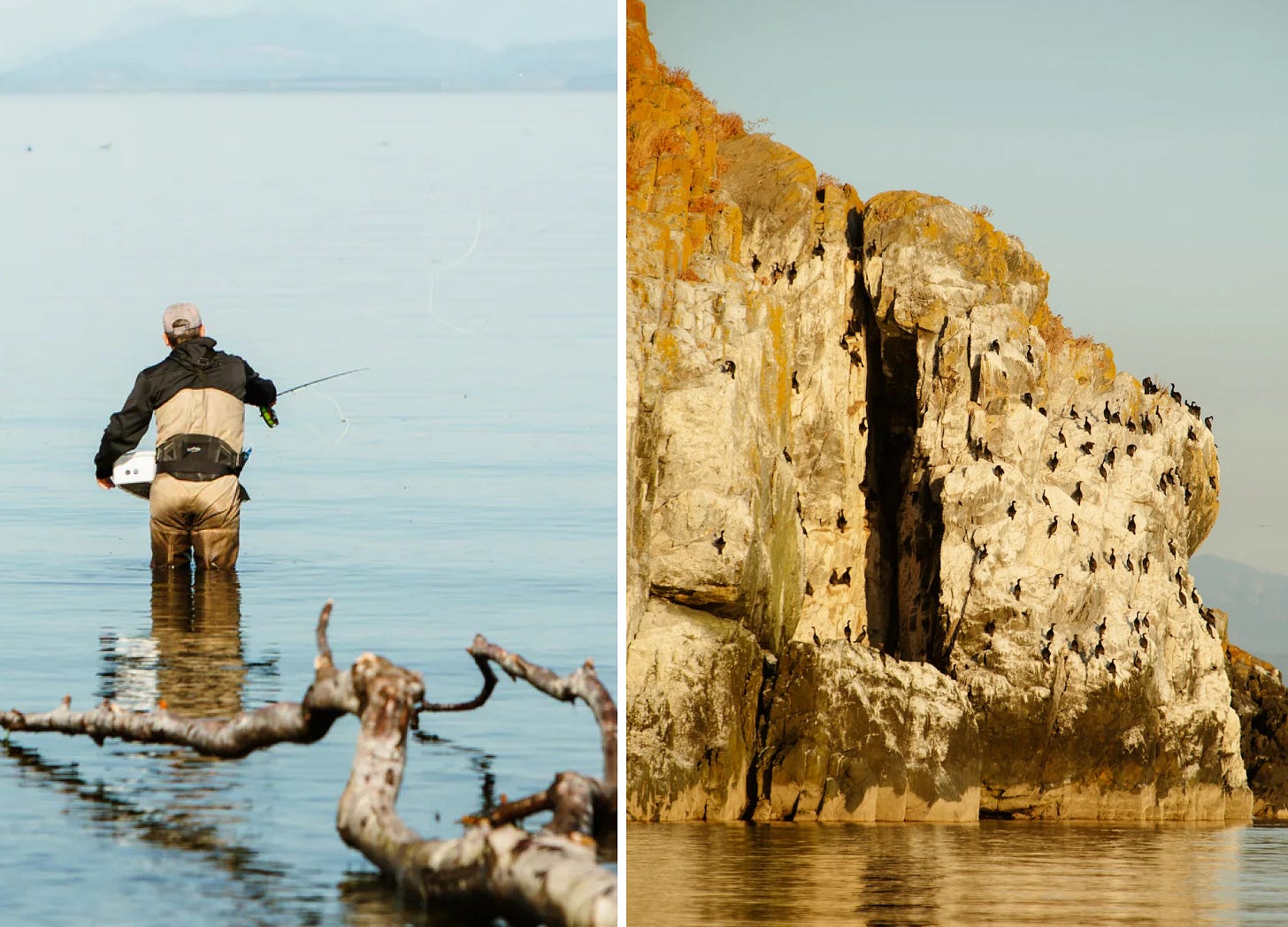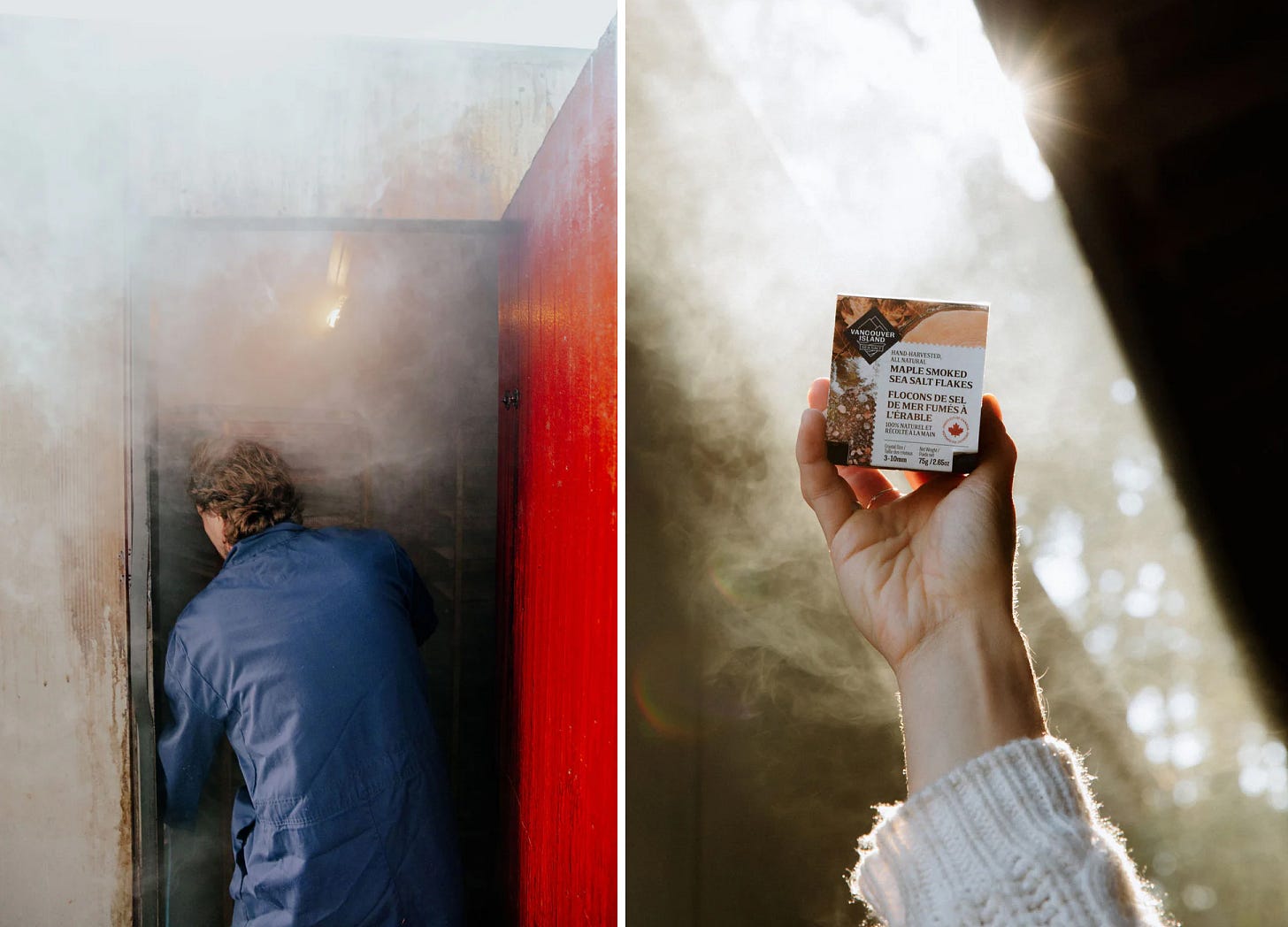Salt of the Earth: The Story of Vancouver Island Sea Salt
Interview with Scott Gibson
When most people think of Canada, salt isn't the first thing that comes to mind. Beautiful landscapes, maple syrup, and endless coastlines? Sure. But salt? Not so much. That's exactly what makes Vancouver Island Sea Salt a great discovery.
I originally found this company when I was in search of a maple smoked salt for a collab we did with J Street Chocolate and HIlda & Jessie inspired by the Pancake without Boarders that is a signature on their menu. Vancouver Island Sea Salt was the only one I could find that was not adding maple flavoring or syrup but using the maple wood. Sorry, not sorry that this collaboration bar was sold out immediately. My fingers are crossed for more collaborations in the future.
My chat with founder Scott Gibson tells the story of the company's passion and delicious circular economy focus.
A Global Journey Home
Scott Gibson's story begins not in Canada, but across the world. After spending years in finance, traveling through Asia and living in multiple countries, he and his wife noticed something peculiar. Every country they visited had its own distinctive salt tradition—except Canada. "Canada has the longest coastline in the world," Scott explains, "and yet, no one was making sea salt."
It was his wife who first posed the provocative question: "What about Canada? Canada doesn't have salt. We have water. There must be a reason." She collects salt when traveling like I do, so I hope to share notes with her soon.
More Than Just Salt
What started as a curiosity has become a mission of sustainability and storytelling. Harvested from a 400-acre farm and private oceanfront, Vancouver Island Sea Salt is about more than just seasoning. It's about capturing the essence of a place.
"Every country we went to had their version of salt. In the Philippines, in Indonesia, in Australia—everyone had their unique salt."
The location is strategic. Situated at the precise point where Pacific currents meet, their salt water comes from some of the fastest-moving currents anywhere in the Pacific. It's a natural filtration system that creates something truly special.
Beyond the Ordinary
Their product line is anything but standard. Yes, their essential sea salt is beautiful on its own, but they lean into the location and local partnerships. Take their maple wood smoked salt—a product that's caused some delightful confusion. "A lot of people think we mean maple syrup," Scott laughs. "We've even had Quebec customers offended when they discovered it was actually smoked with maple wood." Their maple smoked salt isn't about adding sweetness but about capturing the inherent complexity of maple wood. As Scott puts it, there's an "inherent sweetness" that comes from the wood itself—no sugar added.
They also work with local First Nations for their kelp and partner with the neighboring whiskey company and candy makers to extend out their project line.
A Commitment to Circularity
What truly sets Vancouver Island Sea Salt apart is its commitment to a circular economy. Nothing goes to waste. Their nigari (magnesium chloride brine) finds uses from tofu production to agricultural applications. Even the fresh water extracted during salt production is returned to the local aquifer.
Unexpected Innovations
Some of their most exciting work comes from unexpected collaborations. Like the time they worked with a chocolate company to create a salt using water collected from the North Pole. "They sent an expedition, videoed the whole thing, and had to wait for polar bears to move. They sent us the water, and we crafted the salt."
Why It Matters
In a world of industrial food production, Vancouver Island Sea Salt represents something different. It's not just about creating a product but about telling a story. A story of place, of sustainability, of reimagining what's possible.
"We're not out there to just market different flavors. Everything we do should transform your cooking and tell a uniquely Canadian story."
Vancouver Island Sea Salt is a reminder that even the most humble ingredients can carry extraordinary stories.








